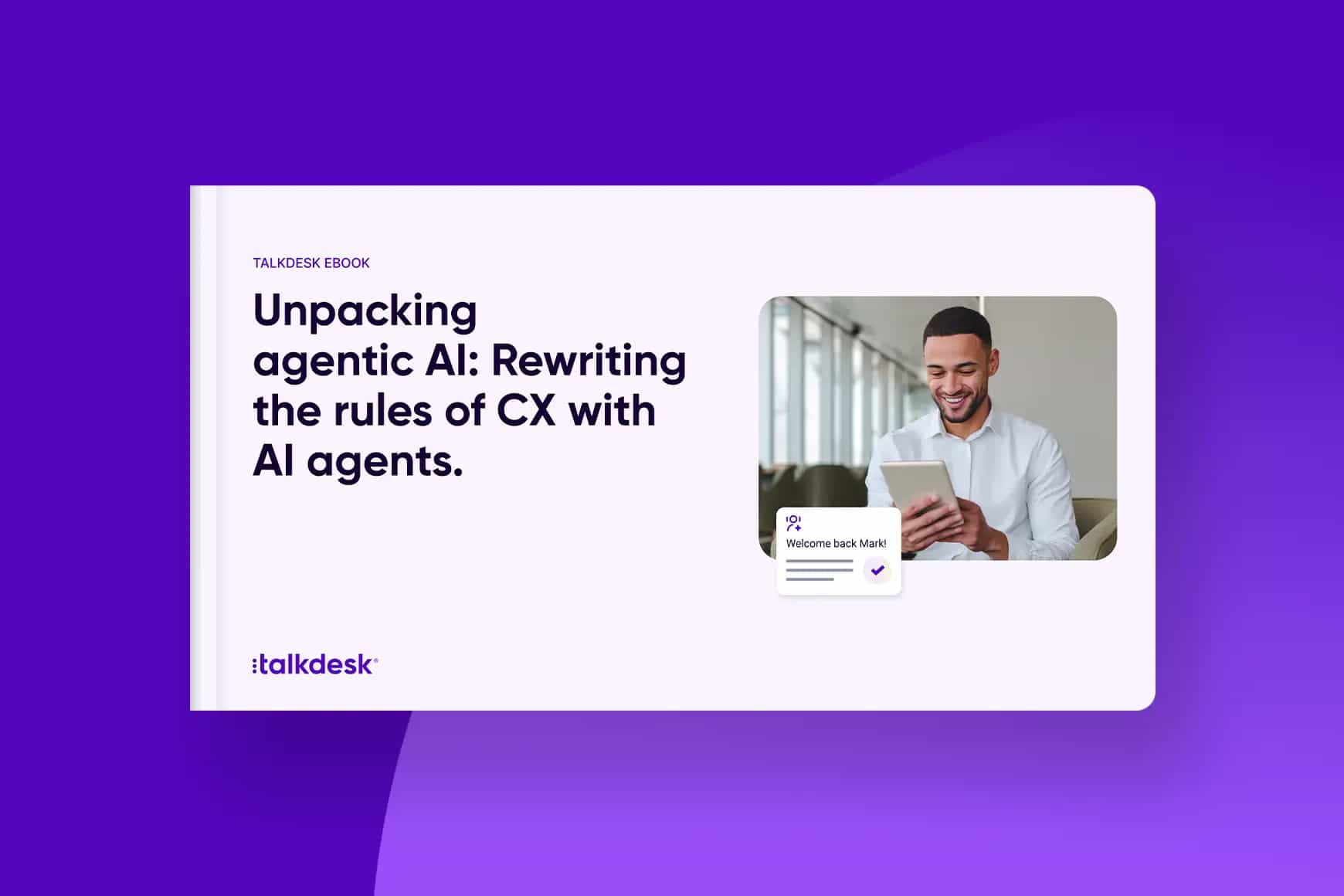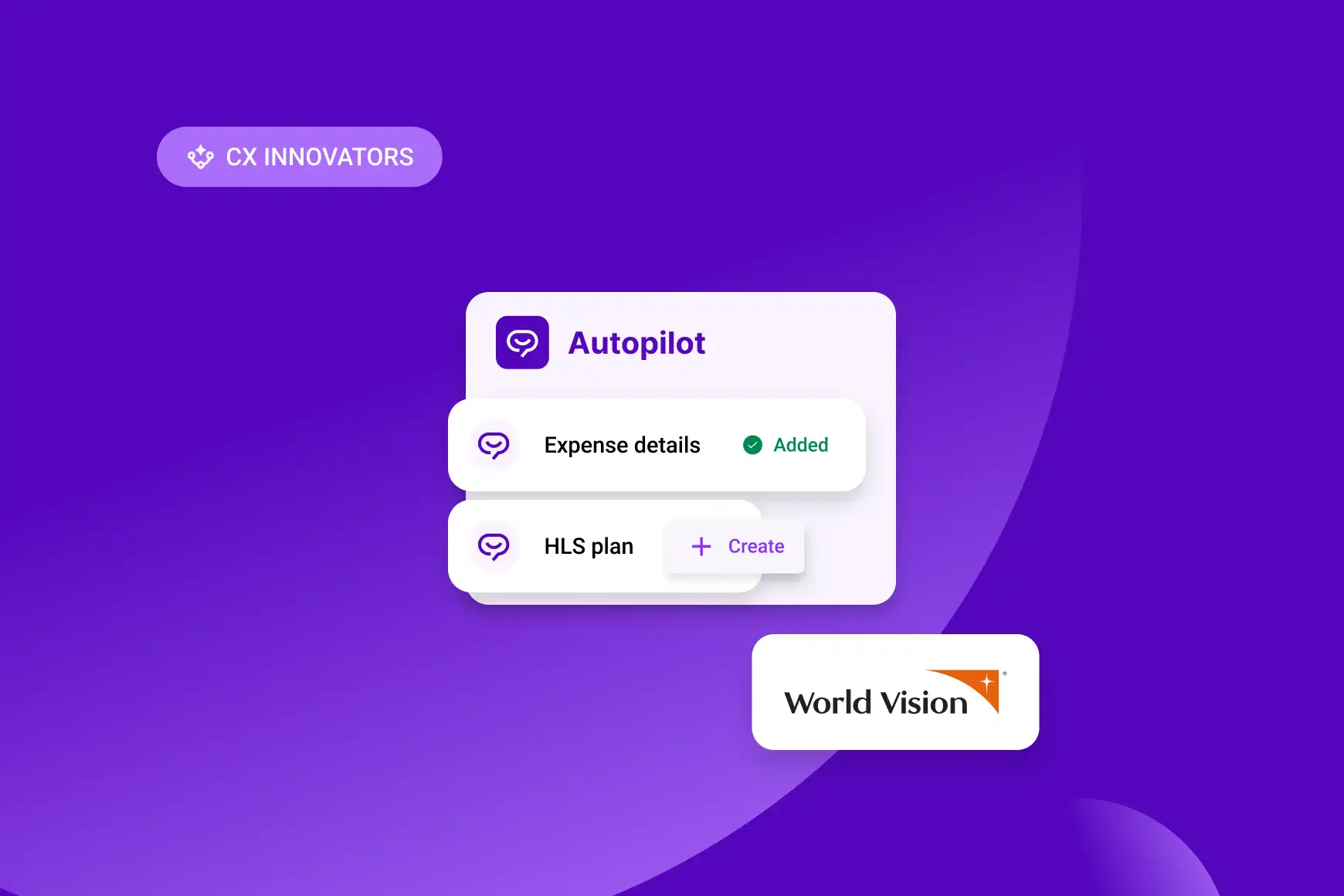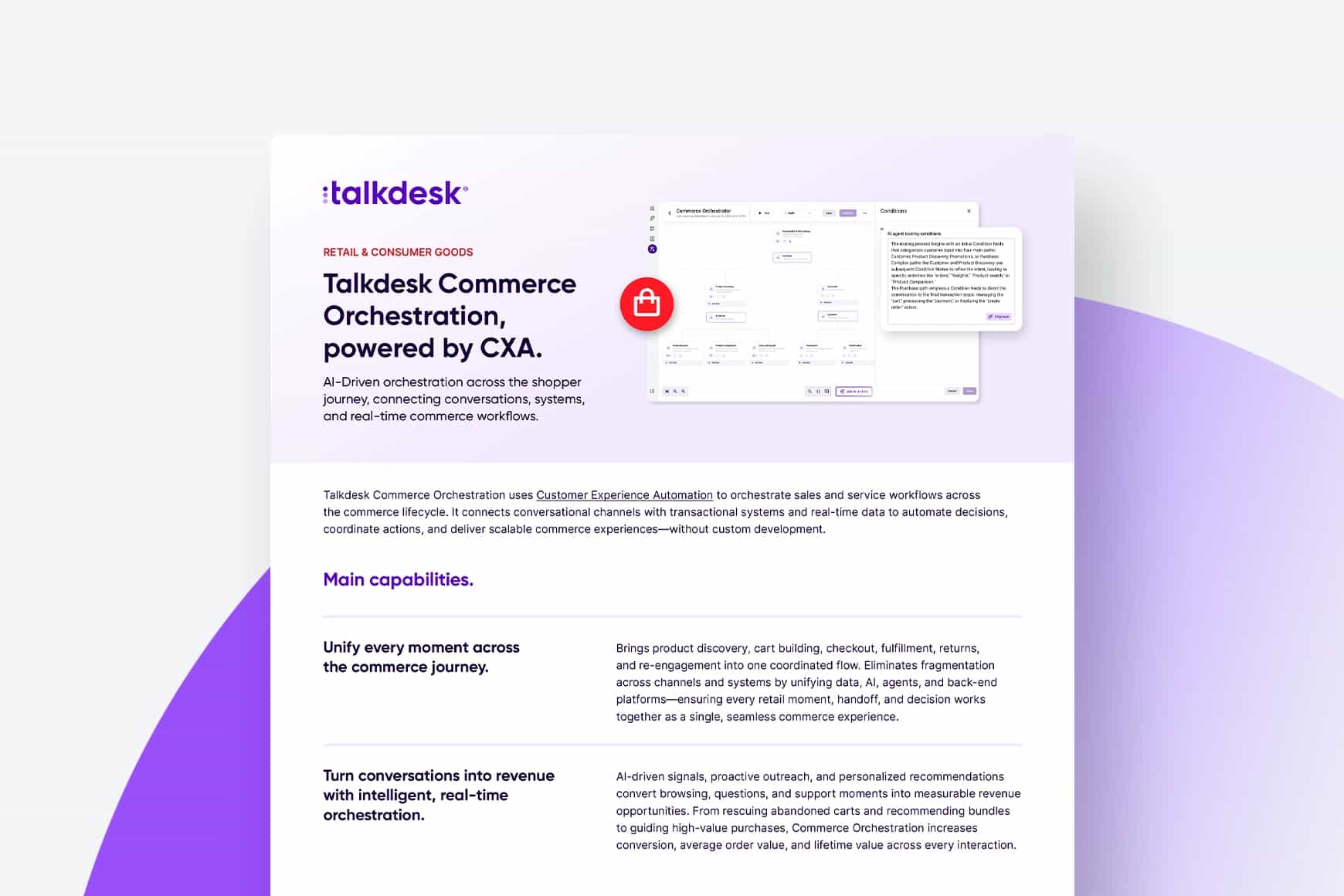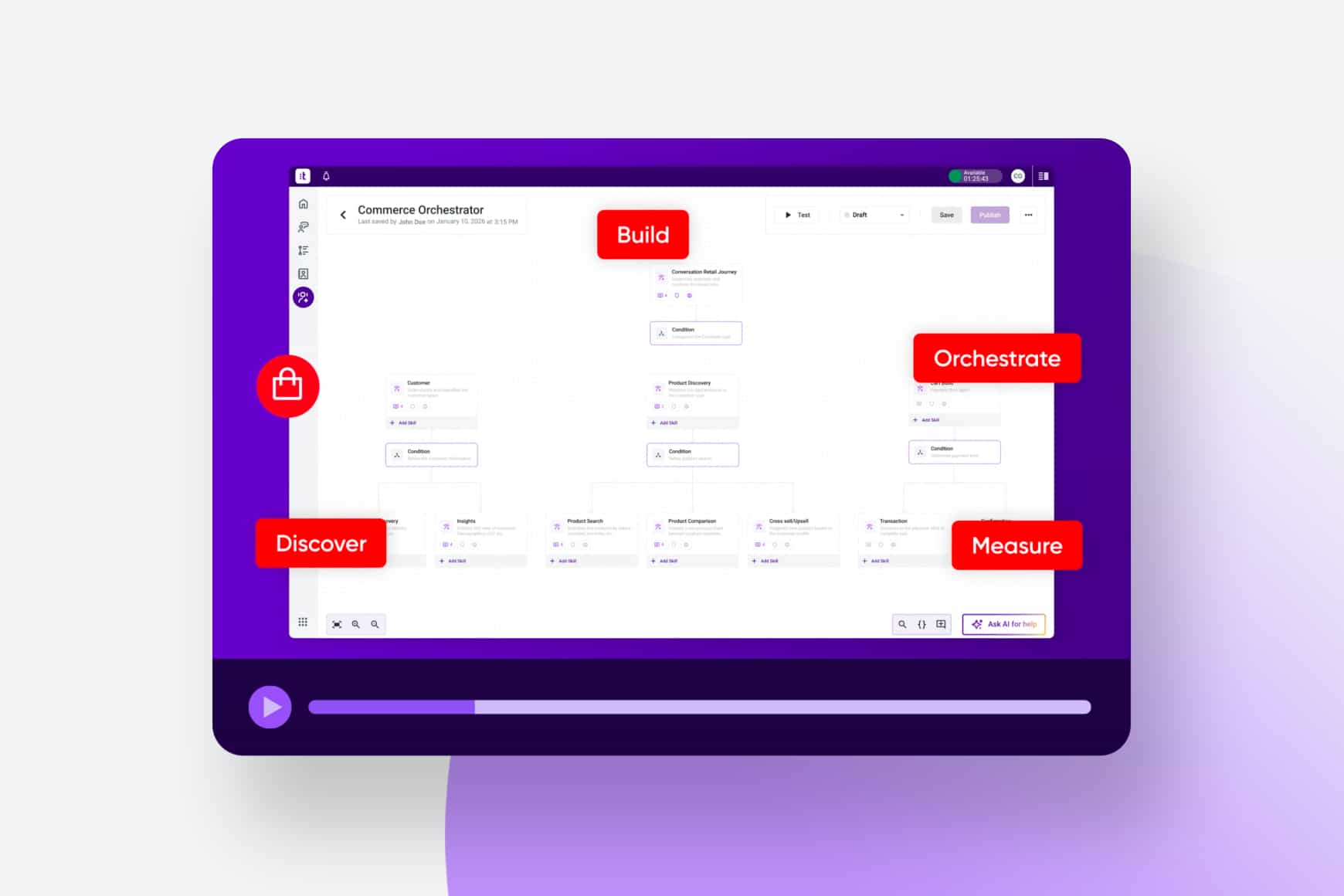How does agentic AI for voice change customer experience?

AI-powered voice interactions are here, and they’re transforming customer experiences. AI for text-based chat is relatively sophisticated, but AI for voice has remained frustratingly rigid, often failing to handle the complexities of natural, real-time human conversation.
Traditional voice AI solutions rely on static scripts, predefined intents, and rule-based decision trees, which makes them predictable but inflexible. They can handle simple, transactional queries, but the moment a conversation becomes dynamic, messy, or ambiguous, they start to break down.
This is where agentic AI for voice breaks through the limits of traditional automation. Unlike its predecessors, agentic AI doesn’t just recognize speech—it actively listens, understands, decides, and adapts in real time. It can navigate interruptions, contextual shifts, emotional cues, and multi-turn reasoning making voice AI feel truly human-like, natural, and responsive for the first time.
![]()
But why has building an intelligent, real-time voice AI been so hard?
And how does Agentic AI overcome those challenges?
1. Real-time decision-making under constraints.
One of the biggest challenges in voice AI is latency. While text-based chatbots have the luxury of taking a second or two to generate a response, voice AI doesn’t. Any delay leads to awkward pauses that make conversations feel unnatural.
To work seamlessly, agentic AI for voice must process, analyze, and respond within milliseconds.
This requires:
-
Fast natural language understanding (NLU) and speech processing to extract meaning in real time.
-
Dynamic intent recognition to find what the user actually needs, instead of following predefined flows.
-
Immediate decision-making based on context, history, and real-time data rather than rigid rules.
For example, if a customer calls their bank and says:

![]() Traditional AI might get stuck trying to follow an intent-based flow—should it pull up the balance first or process the lost card request?
Traditional AI might get stuck trying to follow an intent-based flow—should it pull up the balance first or process the lost card request?
![]() Agentic AI can analyze both intents instantly, prioritize them based on urgency, and guide the customer seamlessly without a pause.
Agentic AI can analyze both intents instantly, prioritize them based on urgency, and guide the customer seamlessly without a pause.
2. Handling interruptions and overlaps.
Humans rarely speak in perfect, structured sentences. Conversations are full of false starts, self-corrections, and interruptions.
People often:
-
Change their minds mid-sentence.
-
Interrupt themselves with “ums” and “uhs.”
-
Talk over the AI when frustrated.
Most traditional voice AI systems can’t handle this well. If a customer interrupts an automated response, the system either ignores them or gets stuck.
Agentic AI dynamically adapts by:
-
Recognizing interruptions and re-prioritizing the conversation in real time.
-
Understanding intent even when speech is fragmented or incomplete.
-
Not getting derailed by filler words or corrections.
Example, if a customer says:
![]() Traditional AI: “I’m sorry, I didn’t understand. Let me restart.”
Traditional AI: “I’m sorry, I didn’t understand. Let me restart.”
![]() Agentic AI: “Got it—you’d like to cancel your flight. I can handle that right away.”
Agentic AI: “Got it—you’d like to cancel your flight. I can handle that right away.”
![]()
This level of adaptive intelligence makes conversations feel effortless, rather than robotic.
3. Context retention and memory.
One major limitation of traditional voice AI is its inability to remember context across multiple turns in a conversation.
Humans naturally refer back to previous parts of a discussion:

(What is “that” referring to?)

(The system needs to recall what it just said.)
![]() Traditional AI loses track, forcing users to repeat information and making interactions frustrating.
Traditional AI loses track, forcing users to repeat information and making interactions frustrating.
![]() Agentic AI solves this by:
Agentic AI solves this by:
-
Retaining conversation memory — both within a single call and across interactions.
-
Understanding pronouns and vague references.
-
Providing continuity, so users don’t have to re-explain themselves.
![]()
This makes voice interactions feel more natural and intelligent, instead of like starting over with every response.
4. Multi-turn reasoning without human oversight.
Unlike scripted AI, which follows predefined decision trees, Agentic AI must reason dynamically. Example:

![]() Traditional AI would likely say: “I’m sorry, I already processed the cancellation.”
Traditional AI would likely say: “I’m sorry, I already processed the cancellation.”
![]() Agentic AI, on the other hand, would seamlessly pivot: “No problem! Let’s look at alternative flights instead.”
Agentic AI, on the other hand, would seamlessly pivot: “No problem! Let’s look at alternative flights instead.”
![]()
This ability to adjust in real time based on user needs removes friction and frustration.
5. Emotion and tone adaptation.
Voice AI does more than understanding words—it also detects emotions and responds appropriately.
If a customer sounds frustrated, the AI should:
-
Reduce tension with a reassuring tone.
-
Prioritize urgency in its response.
If a customer is excited, the AI should:
-
Match their enthusiasm.
![]()
This requires real-time sentiment analysis and dynamic voice modulation, making agentic AI feel truly human-like.
6. Multi-language and code-switching capabilities.
Customers often switch languages mid-sentence:

Agentic AI can:
-
Detect and adapt to language shifts instantly.
-
Respond fluently without forcing the user to restart.
![]()
This is crucial for global businesses and multilingual customer bases.
7. Seamless backend integration.
Agentic AI isn’t just a talking bot:
-
Retrieves real-time account details.
-
Processes transactions securely.
-
Handles errors intelligently.
![]()
Without seamless CRM and backend integration, even the most advanced AI can’t complete tasks effectively.
8. Security and compliance.
In industries like banking, retail, or healthcare voice AI can:
-
Authenticate users without adding friction.
-
Comply with strict regulations (HIPAA, PCI, GDPR).
-
Ensure accuracy in sensitive transactions.
![]()
Security must be built into every layer of an agentic AI system.
Why agentic AI for voice is a breakthrough?
Traditional voice AI has always been rigid and limited, struggling to handle messy, real-world conversations.
Agentic AI changes this by enabling voice systems to:
-
Think, decide, and act in real time.
-
Handle interruptions, emotion, and context shifts effortlessly.
-
Deliver a natural, human-like conversation experience.
![]()
It’s an engineering, linguistic, and AI breakthrough all in one. The result?
Smarter, faster, and more seamless customer interactions without the frustration of outdated voice AI.

ebook
Unpacking Agentic AI: Rewriting the rules of CX with AI Agents.
In this new era of customer experience, AI agents combine the language mastery of generative AI with the autonomy of agentic AI to deliver smarter, faster, and more scalable support.



